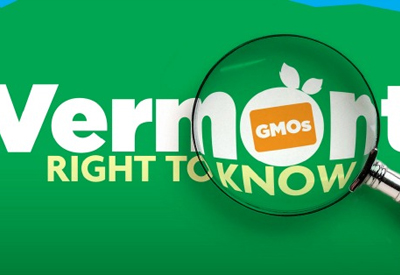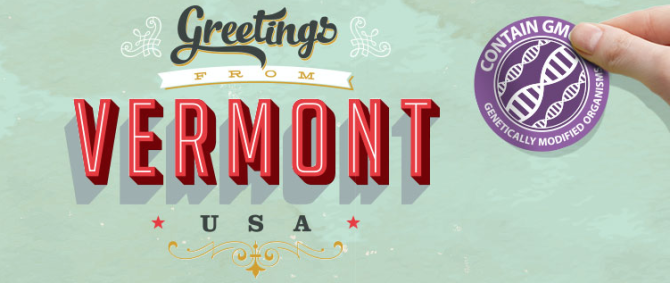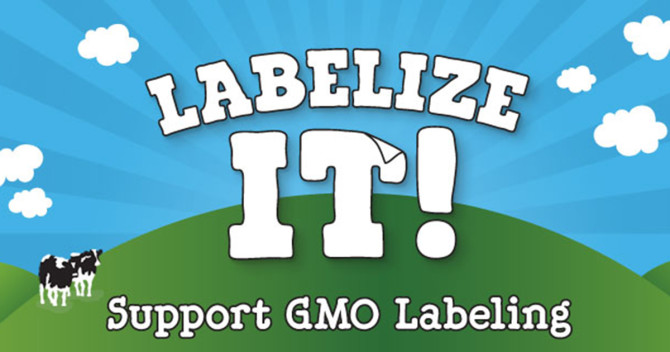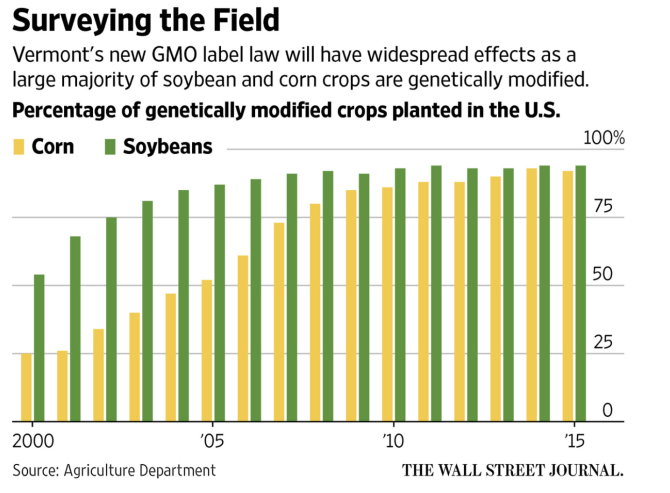GMOs are a very controversial aspect of the American food system. Companies like Monsanto will tell you the benefits of GMOs, while advocacy groups will tell you that they are absolutely horrible. Confused? You are not alone. Here is everything you’ve ever wanted to know about what a GMO actually is.
Now that you have been all caught up and are hopefully less confused, you might be happy to know that Vermont may have started the labeling of GMOs. They have passed a mandatory GMO labeling law, fighting the food industry head on – and winning.
Vermont’s Law

Photo courtesy of naturalsociety.com
The new Vermont law is to go in to effect on July 1 of this year. The law requires that products be labeled if they are, “entirely or partially produced with genetic engineering.” The law also does not allow foods with GMOs to be labeled “natural,” and has damages of up to $1,000 a day per product for non-compliance.
Food products are exempt from labeling in Vermont if they are direct animal products (ex. meat and eggs), certified as non-GMO by organizations such as the Non-GMO Project, none of the ingredients have a genetically modified version, or the GMO ingredients make up less than 0.9% of the product’s weight.
Lawsuit Against Vermont Law

Photo courtesy of www.andnowuknow.com
As could be expected, there was a lawsuit filed shortly after the law passed. These groups filed suits in Federal District Court. They claimed that the law violated their First Amendment and Fifth Amendment rights as well as the Commerce Clause in the U.S. Constitution. They also claimed the the law is preempted by Federal Statute.
This law suit brought up the questions of government’s role in food labeling. It asked if U.S. companies have the First Amendment right to chose what labels they use on their products, and questioned which government level is going to be in charge of labeling regulations.
Industry-Backed Law Stalls in the Senate

Photo courtesy of benejerry.com
Vermont institution Ben & Jerry’s Homemade Inc. removed GMOs from its ice cream in response to consumer pressure before Vermont’s law passed. Just one of the many reasons Ben & Jerry’s is awesome. Grab some ice cream and wine to celebrate this awesome company.
An Industry-backed federal law, intending to block states’ authority to require GMO labeling, did not pass in the U.S. Senate. If it had passed, the Vermont GMO Law would be stopped, as state labeling laws would not have been permitted.
Supporters of the bill believed that allowing each state to establish their own labeling laws would lead to uneven laws across the country, leaving an undue burden on companies who would have to meet each state’s different regulations.
Large Companies to Start Labeling

Photo courtesy of bloomberg.com
With looming fines of up to $1,000 a day per product, food producers are making big changes. Many, including General Mills and Mars Inc., are labeling their products with GMOs nationwide because they believe it would be too complex and expensive to create separate distribution and labeling for Vermont only. It is expected that a growing number of large companies will follow suit and label the genetically modified organisms in their products.
Vermont is a very tiny market for a lot of large corporations, but the integrated nature of supply chains makes its effect much larger. Vermont’s law is having a huge impact on consumer choice nationwide. This is just one more reason why every foodie should love Vermont.

Some companies, such as Freedom Food, are able to remove GMO ingredients from their products only in Vermont. They have removed GMOs from the granolas and cookies it makes for Vermont grocery stores.
What does this all mean?

Photo courtesy of occupycorporatism.com
For those consumers who want to make their own choice about what to put in their body, that chance could be coming soon nationwide. Granted, there will be a lot of opposition to this law and others like it in the future. We will just have to wait and see what happens in Congress if another bill is proposed that challenges the Vermont law. For now, this small victory is cause enough for celebration.

Gif courtesy of hunterxhunter.wikia.com


